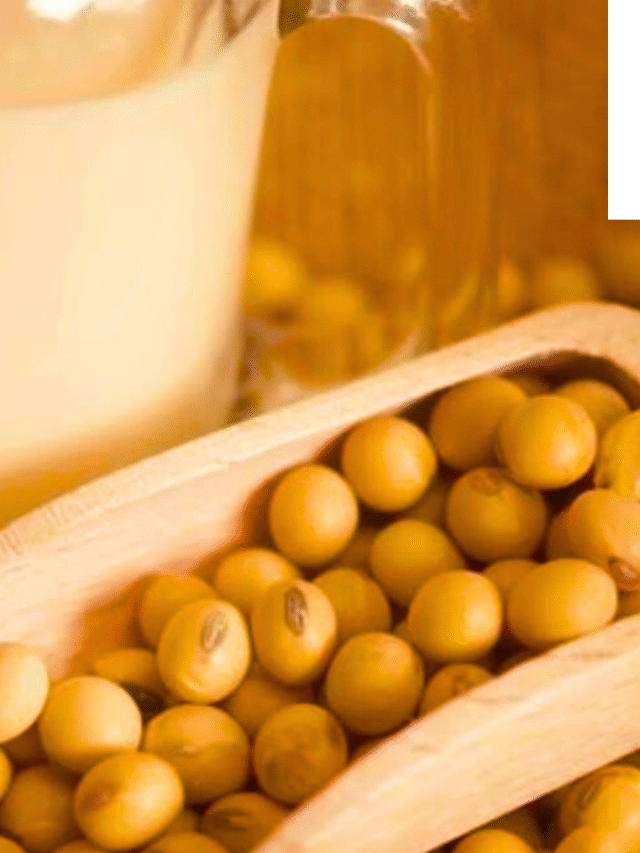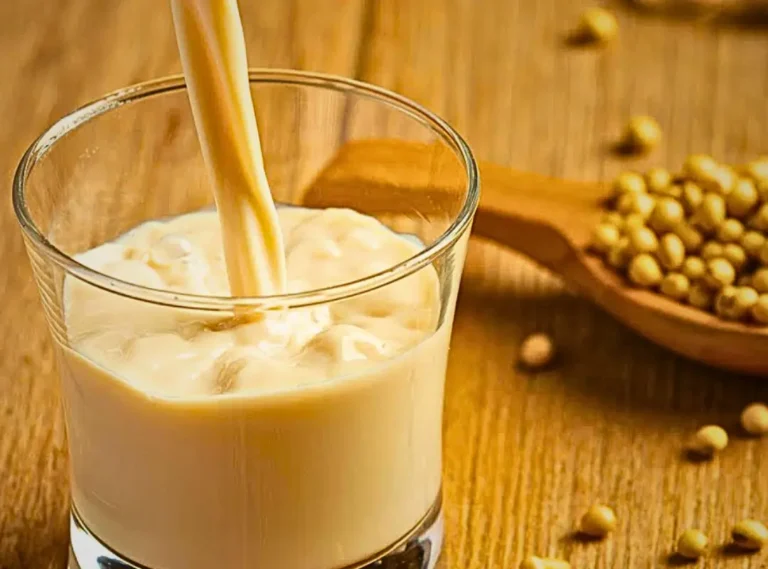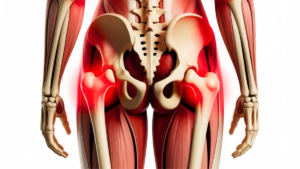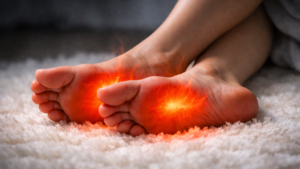
Introduction
Have you ever noticed that in Asian countries such as Japan and China, women often eat soy every day? Interestingly, studies show that these women report fewer severe menopause symptoms, such as hot flashes and insomnia, compared to Western women. This sparked the interest of scientists in understanding whether soy has any effect on female hormones, especially estrogen.
Soy’s Action on Estrogen

Soy contains natural compounds called isoflavones, also known as phytoestrogens. They are named this way because their structure is similar to human estrogen. Once consumed, these isoflavones can attach to estrogen receptors in the body, helping to compensate in a mild way for the natural drop in hormones that occurs during menopause.
This means soy does not “produce estrogen” in the body, but its isoflavones can mimic part of its action, bringing natural relief, especially for women in this stage of life.
Chemical Components Responsible
The three main isoflavones in soy are:
Genistein
Daidzein
Glycitein
These molecules interact with estrogen receptors, generating a weaker effect compared to natural estrogen. This “gentler version” is what helps balance the body without the stronger impact of hormonal medication.
How to Make Soy Milk at Home

Making soy milk at home is simple and budget-friendly.
Ingredients:
1 cup soybeans
1.5 liters of water
Preparation:
Wash the soybeans and soak for 8–12 hours.
Drain and blend the soaked beans with 1 liter of fresh water.
Strain using a thin cloth or fine sieve.
Boil the liquid for 10–15 minutes, stirring occasionally.
Store in the fridge for up to 3 days.
It can be consumed plain, lightly sweetened, or used in smoothies, cakes, and porridge
How to Use Soy in Daily Life
Soy doesn’t have to appear only as milk. You can include it in many forms:
Cooked soybeans in salads to boost protein.
Soups and stews with cooked soybeans.
Soy burgers made with mashed beans and spices.
Roasted soybeans as a crunchy snack.
Tofu (soybean curd) in salads, stir-fries, or grilled.
Proven Benefits in Menopause

Hot flashes: Isoflavones can reduce hot flash frequency and intensity by about 20–30% compared to placebo modest, but meaningful for some women.
Cholesterol: Regular soy intake can help slightly lower LDL cholesterol and support heart health.
Bone health: Long-term intake (≥12 months) of isoflavones, especially genistein, may help reduce bone loss in postmenopausal women.
Mood and sleep: Evidence is mixed. Some women report small improvements, while others see little effect.
Safety
As a food, soy is safe. Foods such as tofu, soy milk, and tempeh are safe even for women with a history of breast cancer. Some studies suggest a protective effect when soy is part of the diet.
Supplements with concentrated isoflavones should be used under medical supervision. If you are taking other medications, such as thyroid medication, consult your doctor before using soy as a supplement.
Conclusion

Soy is not a “natural hormone,” but its isoflavones can act similarly to estrogen, offering gentle and safe support for many women during menopause. Regular consumption of soy-based foods such as soy milk, tofu, tempeh, or whole beans can help reduce hot flashes, promote heart, cholesterol, and bone health, and provide valuable fiber and protein.
Results vary from woman to woman, and soy is not a substitute for medical treatment when menopausal symptoms are severe. Still, as part of a balanced diet, soy can be a natural and versatile ally for navigating this phase with greater comfort, energy, and health.
Scientific References
Messina M, Rogero MM, Fisberg M, et al. Health effects of soy protein and isoflavones in humans. J Nutr. 2022;152(10):2425–2455. https://doi.org/10.1093/jn/nxac150
Franco OH, Chowdhury R, Troup J, Voortman T, Kunutsor S, Kavousi M, Oliver-Williams C, Muka T. Use of plant-based therapies and menopausal symptoms: a systematic review and meta-analysis. JAMA. 2016;315(23):2554–2563. https://doi.org/10.1001/jama.2016.8012
Researched and written by: Vilma Mendonça – Pharmacist







4 Comments
[…] 👉 Related article: https://mariahchic.com/menopause/does-soy-increase-estrogen […]
[…] https://mariahchic.com/menopause/does-soy-increase-estrogen […]
[…] Read: https://mariahchic.com/menopause/does-soy-increase-estrogen/ […]
vugeorxklsdiwevmupklsgvdfsgrhl